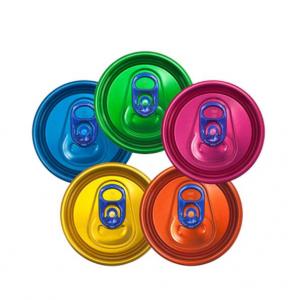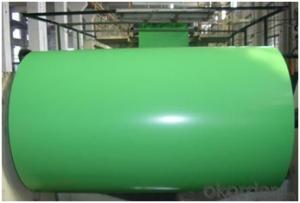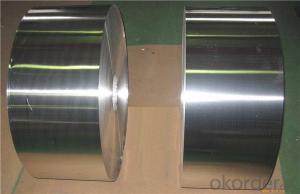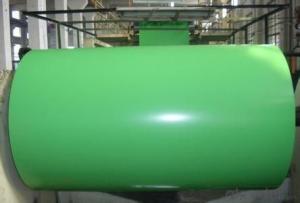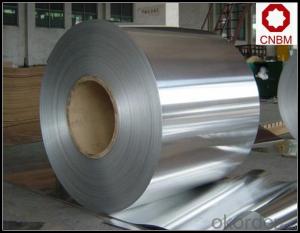Coated Aluminium Coil for Aluminium Can End
- Loading Port:
- Shanghai
- Payment Terms:
- TT or LC
- Min Order Qty:
- 5 m.t.
- Supply Capability:
- 5000 m.t./month
OKorder Service Pledge
OKorder Financial Service
You Might Also Like
1.Specification
ALLOY:AA5182,AA5052
TEMPER:H48,H49
THICKNESS:0.26-0.29mm
WIDTH:60-1800mm(end&tab stock)
PAINT:PPG OR VALSPAR
LUBRICATION:HENKEL
Special specification is available on customer's requirement
2.Description
Coating Systems: Internationally recognised coil coating systems complying with FDA and other industry regulations are available to meet the requirements for beer, tea, carbonated soft drink and other beverages. These include:
A.Water based epoxy resin system
B.Solvent based epoxy resin system
C.Solvent based polyester resin system
D.Coatings are available for post lube or non-post lube applications.
E.Coloured end stock includes a variety of gold shades as well as a limited range of double coated can end to suit specific customer requirements
3.Pictures
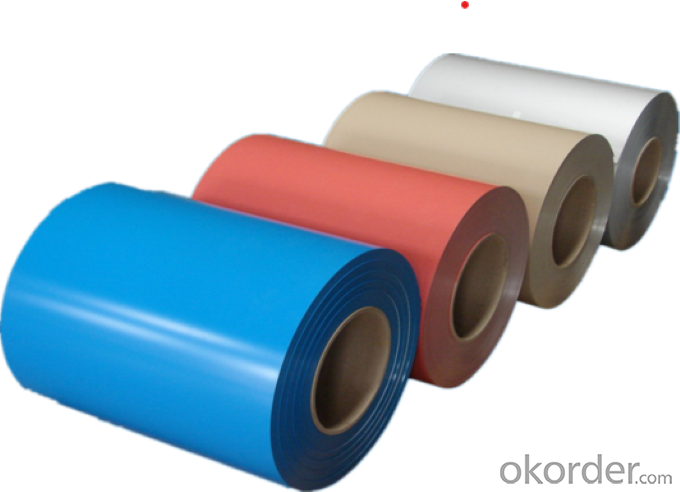
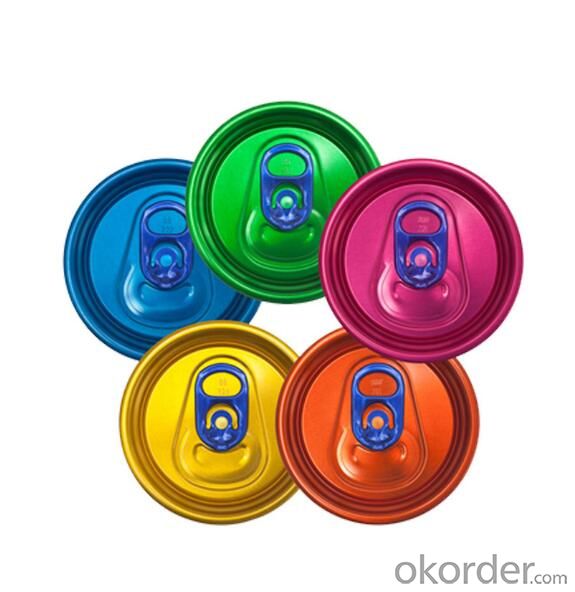
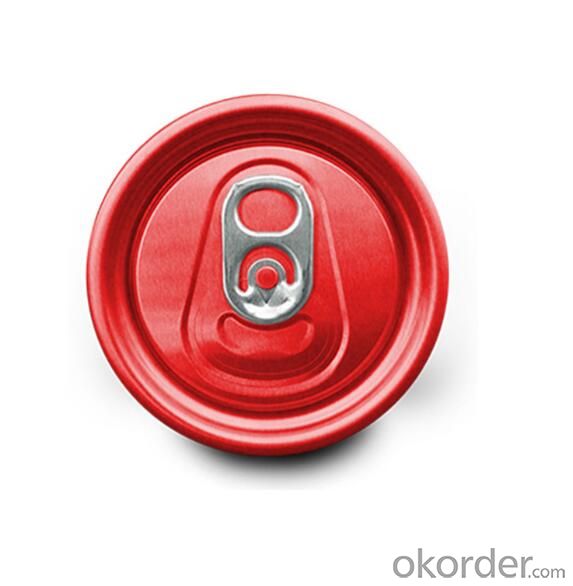
5.Certificates
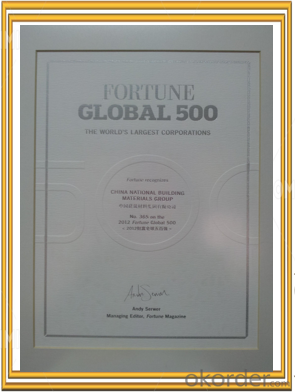
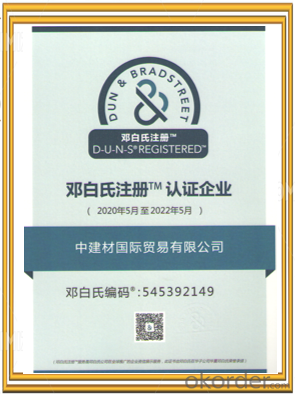
- Q:What are the different protective film options for aluminum coils?
- There are several protective film options available for aluminum coils, each offering specific benefits and suitability for different applications. Some common options include: 1. PVC (Polyvinyl Chloride) Film: PVC films are widely used for protecting aluminum coils due to their excellent resistance to moisture, chemicals, and abrasion. They provide a high level of surface protection and are available in various thicknesses and adhesive strengths. 2. PE (Polyethylene) Film: PE films are another popular choice for protecting aluminum coils. They offer good resistance to moisture and UV radiation and are generally more cost-effective than PVC films. PE films are available in different grades, including low-density polyethylene (LDPE) and linear low-density polyethylene (LLDPE). 3. PP (Polypropylene) Film: PP films are known for their excellent tear resistance and high tensile strength. They provide good protection against mechanical damage and are suitable for applications where coils may undergo rough handling or transportation. 4. PET (Polyethylene Terephthalate) Film: PET films offer outstanding clarity and transparency, making them ideal for applications where visual inspection of the coils is required. They also provide good resistance to heat, chemicals, and abrasion. 5. Adhesive Coatings: In addition to films, adhesive coatings are sometimes used to protect aluminum coils. These coatings are typically applied directly to the surface of the coil and form a protective layer against moisture, corrosion, and scratching. When selecting a protective film for aluminum coils, it is essential to consider factors such as the intended application, environmental conditions, handling processes, and desired level of protection. Consulting with a supplier or manufacturer can help determine the most suitable option for specific requirements.
- Q:Can aluminum coils be used in the manufacturing of solar reflectors?
- Yes, aluminum coils can be used in the manufacturing of solar reflectors. Aluminum is a preferred material for solar reflectors due to its high reflectivity, low cost, and lightweight nature. It has excellent thermal conductivity and is resistant to corrosion, making it suitable for outdoor applications. Aluminum coils can be easily shaped and formed into the desired reflector shape, allowing for efficient concentration and reflection of sunlight onto solar panels or other solar energy systems. Additionally, aluminum is a sustainable material that can be recycled, further enhancing its environmental benefits in solar reflector manufacturing.
- Q:Is anodized aluminum suitable for indefinite salt-water exposure or will it rust? Also note that it would be used for the hull of a boat (more like a platform), and if it is not suitable could you suggest another metal?
- Is Aluminium Rust Proof
- Q:I am concerned about the environment so I collect empty aluminum cans off the street when I walk my dog. Right now I have 3 large garbage bags full of crushed aluminum can. The problem is... some of the cans have dirt on and in them. Some of thoroughly flattened ones may even have small pebbles embedded in them. Will these be accepted at the recycling facility? I'm guessing it doesn't matter because when they melt them any organic materials will burn away and any dirt particles or small pebbles will be separated from the molten aluminum. What do you think?
- The dirt won't be a problem, normally. The pebbles might, but I haven't heard any mention of this being a problem. Add: Aluminum melts at around 960 F, while most rocks won't. By that time, the dried up sugars and cigarette butts will have all burned off. You can melt aluminum in a cast iron frying pan, but I really don't recommend trying that: If a drop of water hits the molten aluminum it'll expand somewhere around 1700 times it's original volume, nearly instantly. This will be like a small bomb going off, and molten aluminum will spray all over. That's quite dangerous, even if you do have protective gear.
- Q:Can aluminum coils be customized to specific requirements?
- Yes, aluminum coils can be customized to specific requirements. The customization process involves adjusting the dimensions, thickness, alloy composition, and surface finish of the coils to meet the specific needs of different industries and applications.
- Q:How much can i get for a gallon filled with aluminum Tabs from cans
- Aluminum is not sold by the gallon, it is sold by the pound, so you need to weigh what you have to determine what it is worth. Aluminum is not expensive, so the price you can expect is around 30 to 60 cents per pound.. Contact local recycling centers near you to find out what the going rate for is in your area.
- Q:Can aluminum coils be used for food processing conveyor systems?
- Yes, aluminum coils can be used for food processing conveyor systems. Aluminum is a popular choice for conveyor systems in the food processing industry due to its various beneficial properties. Firstly, aluminum is a lightweight material, which makes it easier to install and transport. This is particularly important for conveyor systems that may require frequent reconfiguration or relocation. Additionally, aluminum has excellent corrosion resistance, which is crucial in food processing environments where exposure to moisture, chemicals, and food particles is common. Furthermore, aluminum is a hygienic material that is easy to clean and maintain, ensuring food safety standards are met. Lastly, aluminum coils can be easily formed and customized to fit specific conveyor system requirements, allowing for efficient and effective food processing operations. Therefore, aluminum coils are a suitable choice for food processing conveyor systems.
- Q:What is the tensile strength of aluminum coils?
- The specific alloy and temper employed can cause variations in the tensile strength of aluminum coils. On average, aluminum coils exhibit a tensile strength within the range of 150 to 300 megapascals (MPa). This implies that aluminum coils can endure a pulling force of 150 to 300 MPa without succumbing to breakage or deformation. It is noteworthy that the thickness of the coil, the manufacturing technique, and any supplementary treatments or coatings administered to the aluminum can potentially impact its tensile strength.
- Q:if the resistivity of aluminium is 2.7×10-8 Ωm
- Let ρ be the resistivity of the aluminum cable, A the cross sectional area of the cable and l the cable's length. The resistance R of the aluminum cable is now given by: R = ρ·l / A = 2.7·10^-8·(10·10^3) / (π·r?) = 2.7·10^-8·(10·10^3) / (π·(1·10^-3)?) = 85.9 Ω I guess the tricky part is remembering: R = ρ·l / A but when you realize how intuitive this equation is you don't have to memorize it. The resistance R is proportional to the resistivity ρ, so we must have the following in our equation: R = ρ·k , where k is some value governed by the dimensions of the cable! It is logical that the resistance is also proportional to the wires length l. This is logical when you realize that the longer the wire the more obstacles the electrons will have to pass by! Now we have that: R = ρ·l·c , where c is another value governed now by the cross sectional area (only dimensional property left). If we think of the wire as a highway with cars instead of electrons we realize that there is less resistance (higher speed) when the highway has many lanes and is very broad. From this we realize that the greater the cross sectional area the smaller the resistance. R must therefore be inversely proportional to A. We now have: R = ρ·l / A I hope there are no mistakes here :P
- Q:Are aluminum coils suitable for architectural louvers?
- Indeed, architectural louvers can be constructed using aluminum coils as they possess remarkable corrosion resistance, a lightweight composition, and a commendable strength-to-weight ratio. The malleability and manipulability of aluminum coils grant them the ability to be effortlessly shaped and fabricated into diverse forms and dimensions, thereby rendering them exceptionally suitable for fashioning aesthetically appealing and practical louvers. Moreover, the robustness of aluminum guarantees that the louvers will endure severe weather conditions and retain their structural integrity for an extended period. In conclusion, aluminum coils serve as a dependable and adaptable material choice for architectural louvers.
1. Manufacturer Overview |
|
|---|---|
| Location | |
| Year Established | |
| Annual Output Value | |
| Main Markets | |
| Company Certifications | |
2. Manufacturer Certificates |
|
|---|---|
| a) Certification Name | |
| Range | |
| Reference | |
| Validity Period | |
3. Manufacturer Capability |
|
|---|---|
| a)Trade Capacity | |
| Nearest Port | |
| Export Percentage | |
| No.of Employees in Trade Department | |
| Language Spoken: | |
| b)Factory Information | |
| Factory Size: | |
| No. of Production Lines | |
| Contract Manufacturing | |
| Product Price Range | |
Send your message to us
Coated Aluminium Coil for Aluminium Can End
- Loading Port:
- Shanghai
- Payment Terms:
- TT or LC
- Min Order Qty:
- 5 m.t.
- Supply Capability:
- 5000 m.t./month
OKorder Service Pledge
OKorder Financial Service
Similar products
New products
Hot products
Hot Searches
Related keywords
